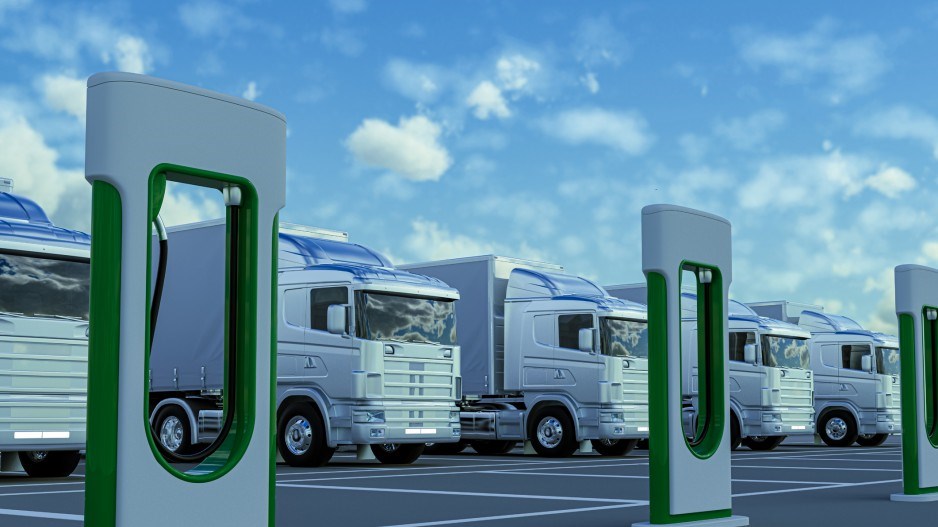World EV Day on Sept. 9 may have resonated more with fleet managers than it usually does. Its 2023 theme – “sustainable electric mobility” – is especially relevant as mounting consumer and government pressure to decarbonize collides with economic uncertainty and rising interest rates.
The benefits of fleet electrification are well documented, but what about its financial and technical sustainability in today’s economic climate? How do fleet operators calculate that?
One way to mitigate the higher upfront costs of electric vehicles and supporting infrastructure is by leasing them. That said, ownership comes with its own set of advantages. Ultimately, organizations must weigh the benefits of leasing versus owning to determine how to balance capital expenditures (CAPEX), tax incentives and cash-flow requirements.
Finding the right fit
Ownership may make sense for organizations able to absorb CAPEX up front. However, cash on hand isn’t the only necessity, as owners need in-house expertise and knowledge around EVs and charging infrastructure to successfully transition their fleets. For those with limited resources, leasing may be a better option.
An organization’s interest in sharing risk with a lending partner, and involving industry experts in the EV transition, are other key factors. Entering into a contract with a lessor is a commitment, but that lessor can in turn bring value-generating experience and expertise to the table, as well as the reach needed to engage with global markets. At 7Gen, for instance, our clients range from office supply retailer Staples to last-mile delivery fleet GoBolt to multinational courier company DHL. In all these cases, 7Gen helps design, install and operate infrastructure to support fleets, apply for grants and subsidies, and strategize on placement and type of EV technology through a lease-to-own model.
It should also be pointed out that organizations don’t have to go all-in on leasing or buying one or more EVs. Some may choose to buy a portion of their fleet’s vehicles and charging stations, and acquire the rest through lease-to-own.
To help guide those choices, here are the principal benefits of owning and leasing EV fleets:
The pros of owning EV fleets
Tax incentives: While it may be more expensive to own up front, organizations may save money in the long run by taking advantage of federal EV incentives that allow Canadian businesses to deduct up to $55,000 of the capital costs of zero-emission vehicles.
Provincial incentives vary, with Quebec and B.C. being the only two that offer rebates on large electric trucks. The CleanBC Go Electric Rebate (formerly SUVI) program offers up to $150,000 for heavy-duty Class 8 trucks, while Quebec’s Écocamionnage offers up to $200,000 per truck. Just remember that finding and applying for these programs isn’t always easy, and that applicants must adhere to reporting requirements.
Fleet control: Having control over a fleet’s assets is appealing in that purchased fleets generally avoid strict maintenance and repair timelines, and owners have more flexibility when taking vehicles for service.
Fewer strings attached: Owning avoids penalties or fees relating to vehicle mileage restrictions that come with certain types of leasing.
The pros of leasing EV fleets
Before proceeding, it’s important to understand the different types of leasing. With financed leases, the risk and return are assumed by the lessee, including asset ownership (or a guarantee on residual value). This enables organizations to leverage existing fleet replacement budgets for down payments, and then pay down the lease from operational fuel and maintenance budgets. With operating leases, the risk, return and ownership are the lessor’s responsibility, which results in a higher monthly price to the lessee than a finance lease and limitations on mileage.
Tax incentives, credits and rebates: Not all federal and provincial tax incentives and credits apply strictly to owners. Aforementioned federal, B.C. and Quebec rebates, for instance, also apply to leased fleet vehicles. Lease payments are also tax deductible.
Steady cash flow: Instead of covering the full price of vehicles and infrastructure upfront, lessees cover depreciation and interest over the terms of leases. The result is a significantly lower down payment. Furthermore, EV lease payments can be made with the money saved on maintaining and fuelling internal combustion engine (ICE) vehicles.
EV and infrastructure certainty: Before an organization can even consider whether EVs will meet its needs, it must make sure the vehicles can travel as far and charge as quickly as needed, can carry the necessary payloads, and that adequate charging infrastructure is in place. The issue with charging infrastructure is the high sunk cost when starting to build. The value of the resulting assets is only a percentage of total CAPEX, meaning financing rates are generally high. By adding EVs to the mix, those rates will improve.
Support and guidance: Leasing typically relieves organizations of the need to have equipment and staff to perform maintenance and repair work, and of taking responsibility for charging and charger management software. Crucially for the initial transition to EV, lessors like 7Gen are also able to leverage their expertise to help organizations choose the equipment that best suits their specific needs, as well as facilitate relationships with EV and charger manufacturers, software providers and utilities. These relationships may fall into place relatively easily for larger fleet operators, but others will find the learning curve and operations management burden to be too costly and time-consuming.
Shayna Rector Bleeker is vice-president, strategic partnerships, and co-founder of 7Gen.






